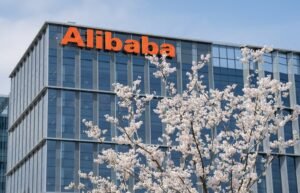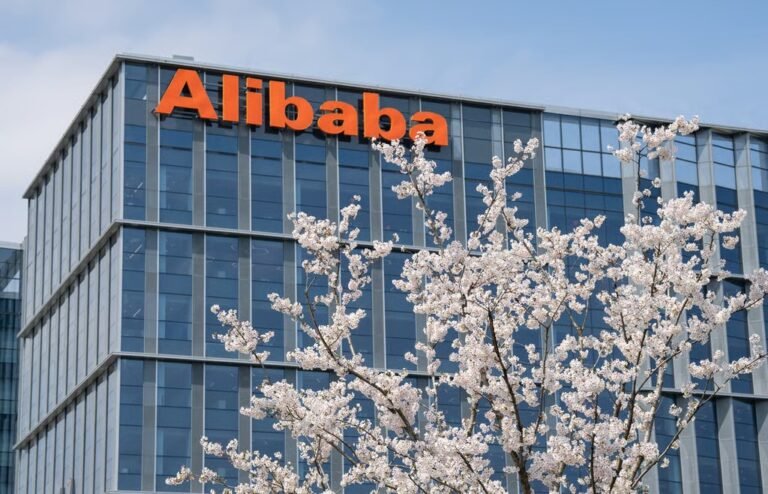Alibaba Group Holding Ltd. saw its cloud business grow 34% in the September quarter, beating revenue expectations. However, heavy spending on AI, consumer subsidies, and new data centers caused profits to fall sharply.
The company’s cloud division, home to the Qwen AI platform, helped overall revenue rise 5% to 247.8 billion yuan ($35 billion). Chinese e-commerce revenue increased 16%, showing Alibaba remains competitive against JD.com and Meituan. Despite the growth, net income fell to 20.99 billion yuan, a decline attributed to rising costs of AI development and marketing.
CEO Eddie Wu dismissed concerns about an AI investment bubble, saying Alibaba plans to continue “aggressive” spending to meet market demand. The Qwen mobile app, designed to rival ChatGPT, attracted 10 million users within four days of its relaunch. Alibaba aims to expand Qwen into a full AI agent for shopping, travel, education, and more.
Analysts from Bloomberg Intelligence note that Alibaba will continue sacrificing margins to capture more consumer spending. Investments in cloud, AI, logistics, and quick-commerce services will remain high through March 2026, likely reducing buybacks and dividends.
Alibaba’s strategy contrasts with U.S. AI giants, which have faced criticism for overinvestment. In China, local competition is fierce. ByteDance’s Doubao chatbot has 172 million monthly active users, and Tencent is developing Yuanbao through WeChat. Domestic AI chip supply is limited due to U.S. restrictions, so Alibaba’s chip unit T-Head is working on alternatives.
Despite the spending, Alibaba’s shares have nearly doubled this year, reflecting investor confidence in its cloud and AI ambitions. Executives also highlighted a recovery in Chinese quick-commerce, which could boost traffic across Alibaba’s platforms and help reach a target of 1 trillion yuan in gross merchandise value over three years.
“Our Alibaba Cloud server infrastructure is seriously lagging behind the growth rate of customer orders. Our backlog of orders continues to expand,” Wu said, emphasizing the need for continued investment.
Alibaba’s growth in cloud and AI shows its determination to lead China’s tech sector, but balancing spending and profitability will remain key for investors.







